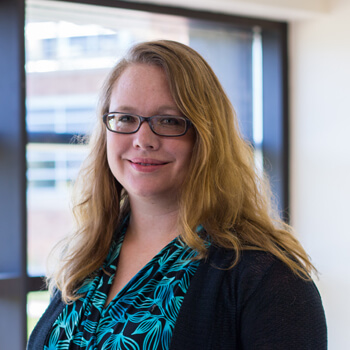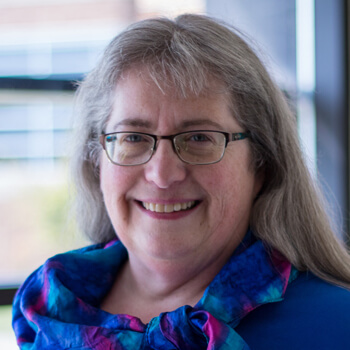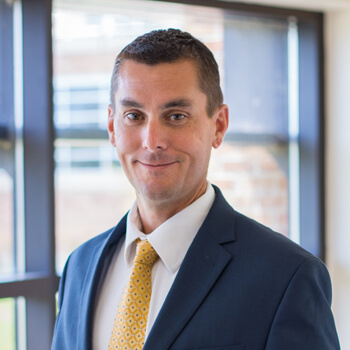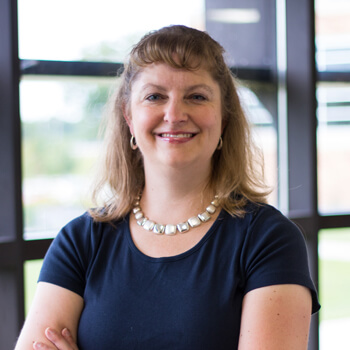Bachelor of Arts in Communication and Leadership
Concordia's accelerated BA in communication and leadership prepares you to be an ethical leader in a complex and diverse world.
Ethical leadership in a complex and diverse world
Take the next step in your career with Concordia’s accelerated bachelor’s in communication and leadership. This interdisciplinary program equips you with the skills you need to be an effective, ethical leader in an organization of any size.
- Critical thinking
- Communication
- Leadership
Questions? We’re here to help
Our team is available to help you as you consider the next step in your education.
Get answers to your questions
Our team is standing by to assist you with additional program details, financial aid options, and admissions questions.
Loading...
Concordia's bachelor’s in communication and leadership program prepares you to be an ethical leader in a complex, diverse world.
Our program cultivates and prepares students to lead with a servant's heart wherever they are called to serve. We believe that good leaders are knowledgeable and excel in all forms of communication, conveying, receiving, and understanding thoughts both orally and in writing. Good leaders are also empathetic. They know what motivates people and understand what people need to find fulfillment in their work, and to do their job effectively.
Bachelor’s degree in communications graduates will be prepared to engage with individuals across cultures, solve problems in a diverse context, and lead from diverse cultural practices and servant leadership. This unique, interdisciplinary program equips you with the skills you need to be an effective, ethical leader in an organization of any size.
This accelerated bachelor's degree program is offered online through our sister campus in Mequon, WI.
Hear from our faculty:
Leadership requires a well-rounded, multifaceted set of skills. Concordia's bachelor’s in communication and leadership program draws from a wide range of disciplines to help you become a strong, ethical leader.
Your critical thinking skills will be sharpened so that you can analyze information and make sound decisions. You will learn effective communication strategies (oral and written) as well as data visualization and communication to help you communicate, inspire, and persuade people. You will study collaboration strategies to help you understand and work with diverse groups. And, you will learn how to become a servant leader through Christ’s humble example of leadership and Christ-centered principles.
Recommended for you (based on programs you’ve viewed)
- Online
You may apply at any time as Concordia operates on a rolling admission basis with new courses beginning every 8 weeks. Applications will be reviewed until about two weeks before the start of the next eight-week class session.
Steps for program admission:
- Submit your accelerated online application.
- We help guide you through: You will receive communication from your helpful Admission Counselor about next steps, entrance requirements, and how to submit application materials.
- Review entrance requirements and submit admissions pieces:
- Cumulative undergrad GPA of 2.00 for previous college credits from regionally accredited institutions for full acceptance. *If GPA is lower than 2.00, students may be accepted conditionally based upon additional requirements.
- Official transcripts from all post-secondary institutions must be sent to CUW Admission, 12800 N. Lake Shore Drive, Mequon, WI 53097. If less than 60 college credits, an official high school transcript or proof of GED is required. *Standardized test results are not required.
- Acceptance! When your application file is complete, it will be reviewed by the admission committee and you will be notified of entrance status.
- Schedule Advising Appointment: Once admitted, you may schedule to meet with your Academic & Career Advisor who will review your degree plan, discuss orientation steps, the CUAA student portal, and assist with registering for classes.
- Fill out application for Uncommon Scholarship if you qualify.
All students applying for admission to the program must submit:
- Official transcripts from all post-secondary institutions attended. In cases where the student has fewer than 60 transferable credits, an official high school transcript or proof of GED must also be submitted.
Angela Belz
Ph.D., M.S.
Department Chair - Qualitative Programs, Associate Professor
Phone: (262) 243-2174
Bio
Angela Belz teaches marketing, public relations, business communication and leadership administration. Her research focuses on how organizational systems and business principles can improve the conditions of under-served populations. She recently initiated and was approved to create a neuromarketing lab in the School of Business in order to enhance the scientific quantitative research into consumer decision making and human behavior.

Education
- Ph D - Leadership for the Advancement of Learning and Service, Cardinal Stritch University (2018)
- MS - Student Personnel Administration, Concordia University Wisconsin (2007)
- BA - Business Administration , Ottawa University (2004)
Research Interests
- Social media and consumer behavior
- Social media and mental health
Teaching Interests
- Marketing Research/Neuromarketing
- Public Relations
Dennis Evans
Ph.D. Mathematics
Department Chair - Math Department, Associate Professor
Office: Luther Hall Luther 208F
Phone: (262) 243-4435
Bio
B.A. Mathematics and B.S. Mathematics from University of Missouri - Columbia<br>M.A. and Ph.D. Mathematics from University of Illinois at Champaign-Urbana

Education
- Ph D - Mathematics, University of Illinois at Champaign-Urbana (1992)
- MA - Mathematics, University of Illinois at Champaign-Urbana (1990)
- BA - Mathematics, University of Missouri - Columbia (1986)
- BS - Computer Science, University of Missouri - Columbia (1986)
Research Interests
- Real Analysis
- Topology of Infinite Dimensional Metric Linear Spaces
Teaching Interests
- Real Analysis
- Logic and Methods of Proof
Elizabeth L. Evans
Ph.D.
Associate Vice President - Academics for Faculty Development and Curriculum Improvement, Professor
Office: Rincker Hall R008
Phone: (262) 243-4283
Bio
Elizabeth Evans serves as the Director of the Center for Excellence in Learning and Teaching and the program director of the Graduate Education certificate in Adult and Community Education. She has worked at Concordia since 1998, including work with adult learners and curriculum for 14 years in the accelerated learning program. She serves as an HLC Peer Reviewer and supports the advancement of assessment of student learning at the program level at CU. Her career experience prior to Concordia was in the insurance industry and non-profit community organizations.

Education
- Ph D - Urban Education, Adult and Continuing Education Leadership, University of Wisconsin - Milwaukee (2010)
- MS - Administrative Leadership of Adult and Continuing Education, Human Resource Development, University of Wisconsin - Milwaukee (1995)
- BS - Sociology/Social Work, Carroll University (1980)
Contributions
- Evans, E. (2017). Quality Improvement in Student Learning Outcomes Assessment: Faculty Learning, Collaboration, Engagement, and Transparency. In Stephen P. Hundley and Karen E. Black (Ed.), (3 ed.,vol. 29,pp. 1-2, 16). Jossey-Bass, San Francisco, CA: Assessment Update: Progress, Trends and Practices in Higher Education/ Jossey Bass Wiley Periodical. http://onlinelibr...
- Evans, E. (2012). Faculty engagement in program-level outcomes assessment: A learning process. In J. E. Groccia & L. Cruz (Eds.), To Improve the Academy: Resources for Faculty, Instructional and Organizational Development, 31, (pp. 37-52). San Francisco, CA: Jossey-Bass. . In J. E. Groccia & L. Cruz (Eds.) (Ed.), (vol. 31,pp. 37-52). Jossey-Bass, San Francisco, CA: To Improve the Academy: Resources for Faculty, Instructional and Organizational Development; Jossey-Bass. https://books.goo...
Presentations
- Evans, E. (2021). Facilitation: Sage on the Stage vs. Guide on the Side. Oral Presentation. International Servant Leader Summit . vrtual online.
- Evans, E. & (2021). Implementing Blackboard’s Assessment Solution: How Concordia University Wisconsin Took a Local and Global Approach. Oral Presentation. Webinar Series " Implementing Blackboard’s Assessment Solution". Virtual online.
- Dvorak, L. & Evans, E. (2021). Developing the Faculty for Future Teaching Effectiveness: Here? There? Everywhere?. Oral Presentation. Higher Learning Commission Annual Conference. Virtual.
- Evans, E. (2017). Faculty Work Well-being and Work Engagement Survey, Pilot. Poster. Concordia Faculty Scholarship Week Poster Session. Mequon Campus.
- Evans, E. (2017). (60 minute Workshop) Indicators of "Good Practice" in Program Assessment: Faculty Collaborating for Quality Outcomes and Tools, Meaningful Evidence, Improvement and Transparency. Oral Presentation. Assessment Institute at Indianapolis . Indianapolis, IN.
Research Interests
- Higher education faculty work
- Adult spiritual development
Teaching Interests
- Adult and Community Education Leadership
- Human Dynamics of Organizations and Change
Matthew Hurtienne
Ph.D.
Dean - Batterman School of Business, Professor
Phone: (262) 243-2024

Education
- Ph D - Education and Human Resource Studies, Colorado State University (2015)
- MS - Organizational Leadership, Norwich University (2009)
- BS - Management, Southern Illinois University (2007)
- Instructional Design Mastery Series , Online Learning Consortium (2016)
Contributions
- Hurtienne, L. & Hurtienne, M. (2024). An introduction to equity leadership: Meeting individual employee needs across organizations. In Dr. Thomas Garavan (Ed.), (5/6 ed.,vol. 48,pp. 609-624). European Journal of Training and Development. https://doi.org/1...
Research Interests
- Employee Engagement
- Organizational Effectivness
Teaching Interests
- Human Resource Development
- Organizational, Performance, and Change
Sandra Jahns
Doctoral Candidate
Assistant Professor
Office: Luther Hall LU205H
Phone: (414) 737-0054
Bio
Experience with Fortune 500 companies, small businesses, econ dev, international work, turnaround management, marketing consulting. Academics: programs for adjunct instructors, teach COMM courses, dedicated to struggling students, interested in faith and learning in the classroom.

Education
- EDD - In progress: Leadership, Innovation and Continuous Improvement (LICI), CUW (2023)
- EDD - Leadership Innovation in Continuous Improvement, CUW (2023)
- MBA - Marketing, University of Wisconsin, Whitewater (1983)
Research Interests
- Annual Study on Conflict/college students
- Analyze current thinking regarding communication and relationships with God's Word
Teaching Interests
- Interpersonal Communication
- Public Speaking
Susan Mobley
Professor
Phone: (262) 243-4276
Bio
Susan Mobley teaches courses on various eras of European history, as well as the Latin language. Her research focuses on the history of education in Western Civilization. She has presented at numerous conferences, has authored articles for various publications, and has appeared on several LCMS media programs.

Education
- Ph D - European History, University of Wisconsin-Madison (1998)
- MA - European History, University of Wisconsin-Madison (1993)
- BA - Journalism/Professional Writing, University of Oklahoma (1991)
Contributions
- Mobley, S. (2021). (Book Review) Mariken Teeuwen and Irene van Renswoude, eds., The Annotated Book in the Early Middle Ages: Practices of Reading and Writing . (2 (Summer) ed.,vol. LII,pp. 441-443). Sixteenth Century Journal.
- Harries, B. & Mobley, S. (2021). Shared Inquiry and (A)Synchronicity: Online Learning in a Freshman Humanities Class. In Whitney Leeson (Ed.), (S01 ed.,vol. 51). Sixteenth Century Studies.
- Mobley, S. (2019). Craig Harline, A World Ablaze: The Rise of Martin Luther and the Birth of the Reformation (Book Review). In Mary Jane Haemig (Ed.), (2 ed.,vol. 33,pp. 213-214). The Lutheran Quarterly .
Presentations
- Mobley, S. (2023). “De causa collegii Ingolstadii instituendi: The Society of Jesus and the Dukes of Bavaria Negotiate Education” . Paper. Sixteenth Century Studies Conference. Baltimore, Maryland.
- Mobley, S. (2021). Confession and Curriculum: State School Ordinances in Württemberg (1559) and Bavaria (1569) . Paper. Sixteenth Century Studies Conference. San Diego, CA.
- Mobley, S. (2019). Mandating Education: State School Ordinances in Württemberg (1559) and Bavaria (1569). Paper. Sixteenth Century Studies. St. Louis, MO.
- Mobley, S. & Harries, B. (2019). The Virtues of Virtue: A Great Conversation in Western Education. Keynote/Plenary Address. Classical Education Conference. Mequon, WI.
- Mobley, S. (2018). The Paedagogium at the University of Ingolstadt, 1526-1588: An Educational Reform Project. Paper. Sixteenth Century Studies Conference. Albuquerque, NM.
Research Interests
- History of education in the West
- Liberal Arts/Classical Education
Teaching Interests
- Renaissance/Reformation
- Medieval and Byzantine civilizations